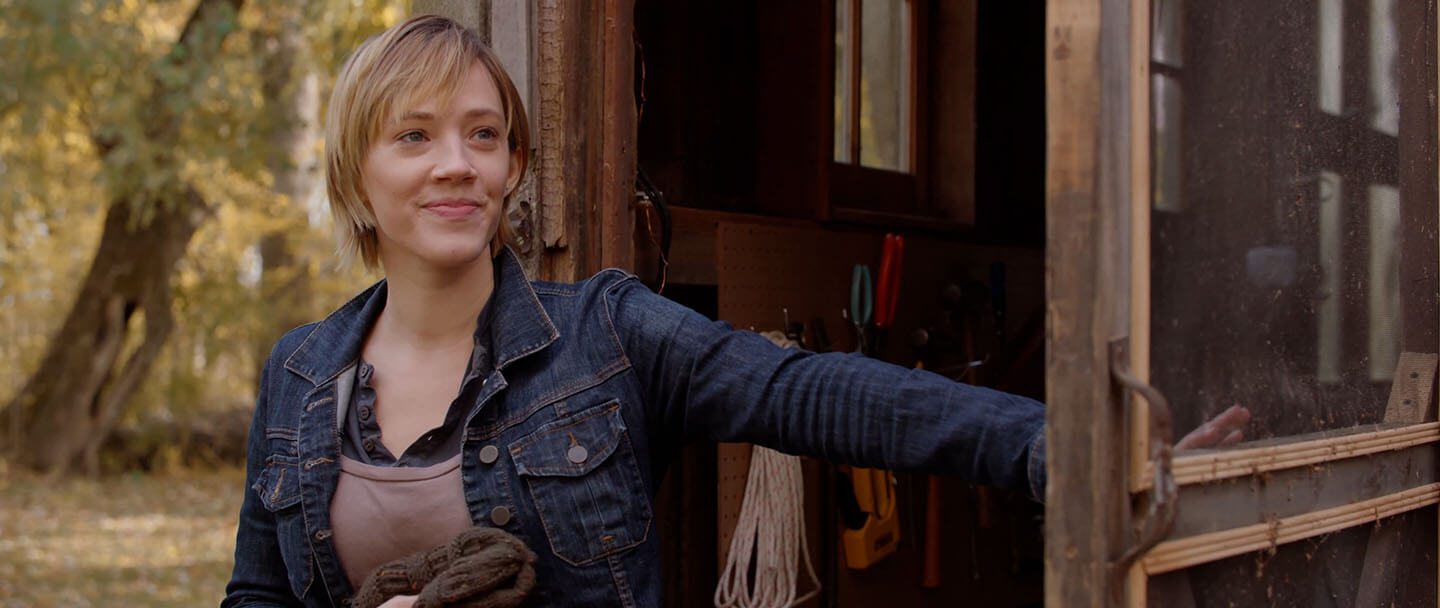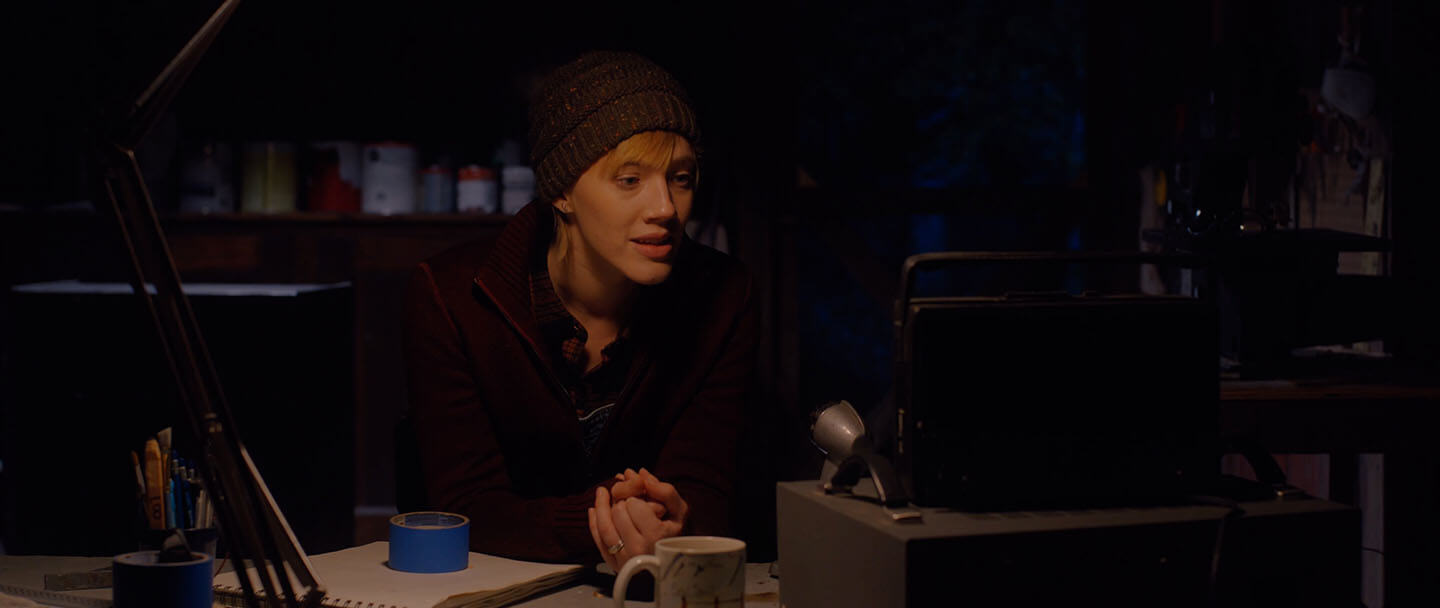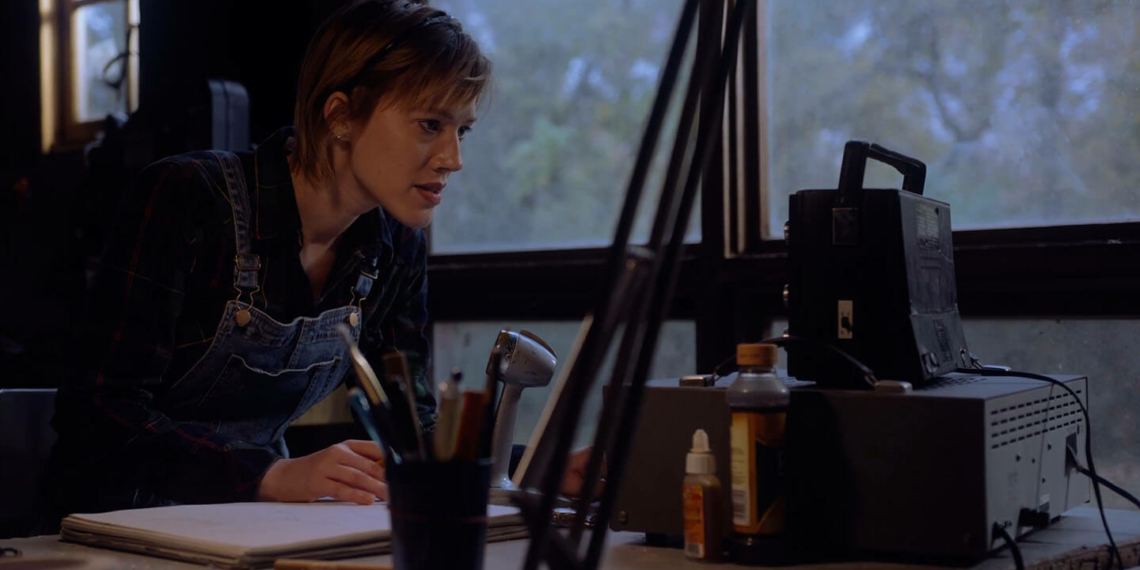John Klein and Kate Black-Spence’s Static Space is a 29-minute romance across space. Centred on a woman in rural Indiana, the film chronicles the surprise connection she forms with an astronaut on an active mission. As their relationship develops, they come together like two tiny, stranded dots in a vast, endless space.
Black-Spence stars as the bright-eyed protagonist Jamie in a screenplay she adapted from Geonn Cannon’s book Can You Hear Me?. Noa aka Col. Deakins (Mariah Copeland) is present almost entirely as a voice emanating from Jamie’s newly acquired vintage radio. Alone in her lonesome carpentry workshop, Jamie keeps it on in the background for the static. Their fledgling romance begins as a fluke, connecting over a song (Britt Kusserow’s Jericho) that Jamie thought was only being broadcast from some station. When informed of Noa’s location (“Outer space.”), Jamie can do nothing but stare. The reverse shot of the radio is funny on the second viewing (on the first, the feeling is scepticism, the same as Jamie’s). Finding another human on the other end, just as lonely if not lonelier, changes Jamie’s small world as both characters hold on to their connection with quiet fervour. The change is palpable. When the cinematography often isolates Jamie’s soft-lit face against a backdrop of darkness, it is conveying not isolation but the pleasure of being enveloped in resonance and hope.

The film is loaded with charm. Black-Spence makes for an excellent weary, yet endearing young woman, necessarily inexperienced due to her rural life but naturally radiant. In her 2010s fashion, Jamie is the life of the film. In contrast, Copeland delivers a balancing act between a worldly wise woman and a vulnerable, lonely astronaut on a larger than life mission (so huge that her disembodied voice is only one of the things that make her abstract). The pairing lovingly continues the tradition of the blonde-haired character with the dark-haired character honoured across WLW media. Their conversations, scheduled in military time but without any of the severity, are the heart of a film where the characters do not have the privilege to share their physical space. Tender, humorous, and often plain cute, they are the expressions of relief at finding a beacon of light in the dark.

Static Space is a wonderfully comforting love story. It has its narrative ups and downs. The static-laden, glitchy transitions serve to keep the threat of severance alive, but the film largely maintains the atmosphere of comfort and joy that the characters forge together. The most important part of the climax is not the fate of the lovers on a plot level, but Jamie’s shattering inability to legitimise their relationship. They are not family. She is not on Noa’s list of contacts. And so, in the brief period before resolution, the film profoundly asks, What significance to friends, lovers, and lifelines?
Watch Static Space Short Film Trailer
Static Space: Love and Friendship in Unlikely Space(s)
-
Direction
-
Cinematography
-
Screenplay
-
Editing
-
Music















